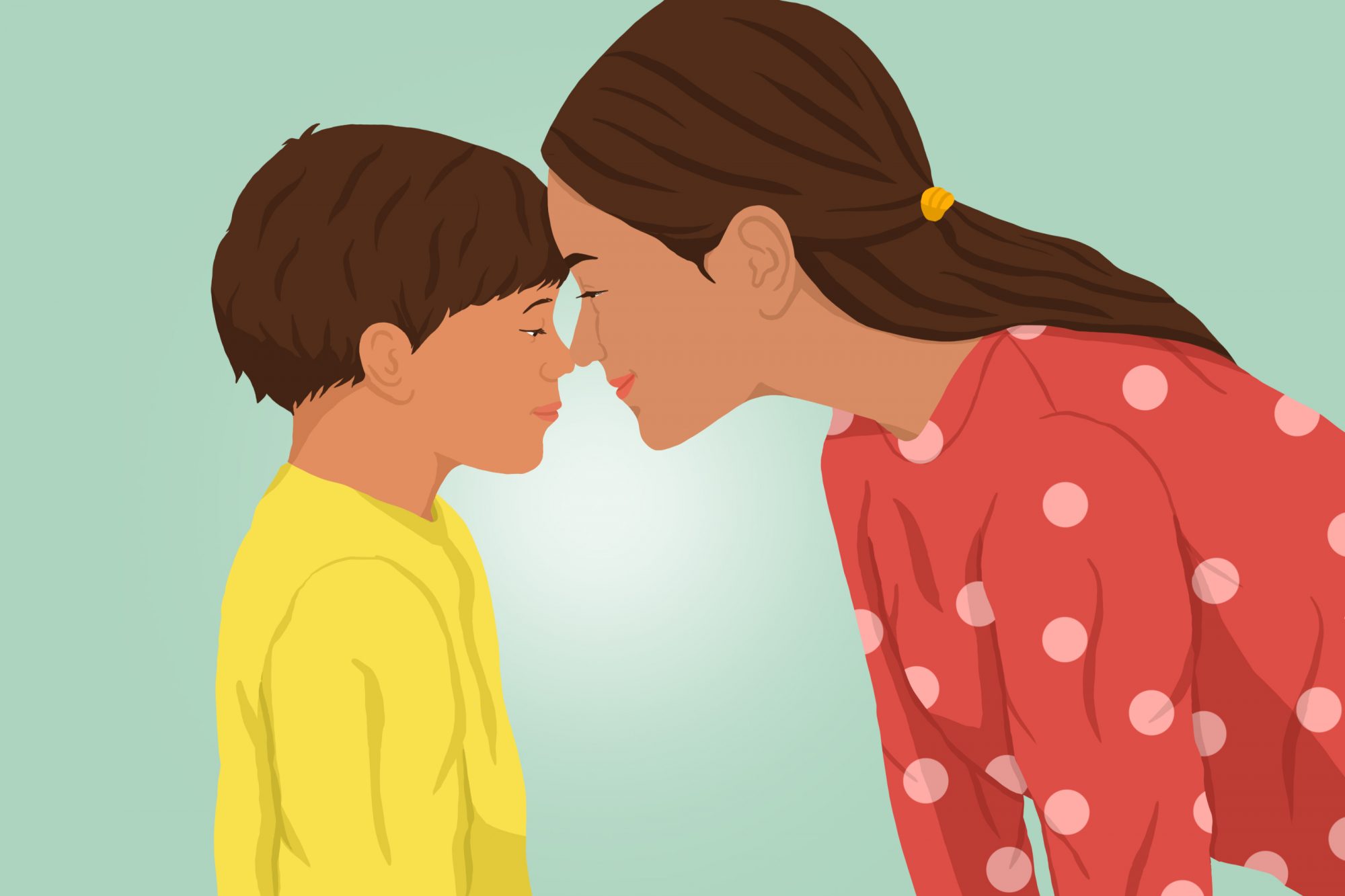
Sometimes he wanders from room to room, too absentminded to read the kinds of books he used to devour, too unfocused to properly set the table or remember to feed the cat. He's inclined to distract himself with hours of Fortnite. He insists that he's doing great until he lashes out or sinks into himself. These days, my 12-year-old son is prone to melancholy.
I've been there. I have grappled with persistent depressive disorder, dysthymia, my whole life.
For the better part of the last 12 years, I have worried about the impact my depression has had on my child. In fact, while it was certainly troubling to feel sad, tired, and fuzzy-headed when I was child-free, once I became responsible for the life of another human, my symptoms sometimes made me question my right to parent at all.
I was widowed when my son was a toddler. His other mommy died when he was 3 years old. She was the "fabulous mom." She wrote songs for him and took him on awesome adventures. She made Halloween costumes, pillow forts, and pancakes. I was the mom he looked for when he was sad. I was the one to whom he often ran for comfort. I was the giver of snuggles and Band-Aids. We had a good balance.
But after we lost her, and especially before I remarried, my lack of intellectual clarity and emotional resilience kept me from being my idea of a good parent. Any resistance my son showed—to signing up for a new activity, to coming along to the farmer's market, to getting on the subway—jammed me up.
I felt like I didn't have the energy to persist. The bare-bones essentials of holding down a day job and keeping us both alive tended to sap all my energy. If I missed the memo (not knowing what a Playstation 4 was until all his friends were already playing, getting the time wrong for his karate class belt ceremony), he missed out big time. We'd both scramble to catch up to a crowd that had usually already moved on to the next cool thing.
Throughout the years, I've tried to be honest about my depression. And while he has witnessed a few intense outbursts during periods of psych-med adjustment, I've been able to explain to him that sometimes adults behave badly and have to take responsibility and apologize, just like kids do.
Seemingly in spite of my perceived inadequacies, the kid did pretty darn well. He got good grades, he had lots of friends, and he learned to work hard, even at things that didn't come naturally. Still, I agonized.
And then the whole world got slammed with COVID-19 and suddenly, my son seemed addicted to comfort food. He'd waste away hours staring at YouTube videos. He told me felt guilty, "unproductive," and afraid that I was angry at him.
"I'm worried that the things you do to make yourself feel better actually make you feel worse," I told my son one day.
He took it in. At that moment, I recognized that my words helped him. I could break his quarantine-induced fog. And after years of worrying my condition had hurt him, I felt like my experience with mental illness was actually serving as an asset in a strange and scary time.
Anecdotally, I've heard that those with obsessive-compulsive disorder (OCD) are feeling less disordered since the coronavirus pandemic has the rest of us constantly washing our hands and obsessing about masks and hand sanitizer.
For my part, I certainly feel more mainstream. Other moms in my life are suddenly discussing things I already know a lot about, like selective serotonin reuptake inhibitors (SSRIs) and stress-relief gummies.
But most importantly, I've realized that the depression coping mechanisms I've developed over the years are actually invaluable tools when it comes to helping my family face this incredibly sad and stressful situation.
Do you know what I'm good at? Making things cozy, binge-watching fun TV, and playing Boggle. I understand the role that good nutrition, fresh air, and exercise play in emotional well-being, and I can prioritize all those things while firmly believing that cider doughnuts make it a wee bit easier to get up in the morning. I can—and I have—shown my son how to make a bad day feel a little bit good, and that has helped us both feel better.
When he feels overwhelmed or helpless, I've gently encouraged him to make the small decisions that help sad, tired people feel brighter. He has come to realize that if he takes that first step—if he reads for an hour, goes for a walk with a friend, does a silly aerobics video with me, or calls his grandmother—his day will improve.
Pre-pandemic, I didn't have the energy to insist he practice singing every day. Any resistance he expressed to such things wore me down. Now I say, "I think you'll feel better if you learn the new song before your lesson." I explain that I understand the weird combination of lethargy and guilt he's feeling; I've been nudging myself out of that exhausting trap for decades. Now, I can help him do the same. And he does. He practices and he improves.
These days, we can't ask too much of ourselves. We're putting one foot in front of the other, taking care of our bodies, taking care of our babies, feeding our minds, indulging in a treat or two, letting ourselves feel lousy if we feel lousy, and remembering to laugh at all the nonsense around us. But I love watching my child rediscover these gentle blessings every day—and I know that, after years of work, I am in the right place and time to help him be happy.





